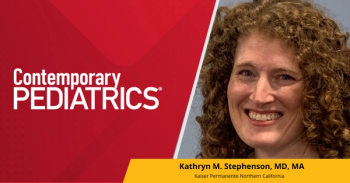
- Vol 35 No 7
- Volume 35
- Issue 7
Is that child with "penicillin allergy" really allergic?
Researchers at Wisconsin Children’s Hospital in Milwaukee, Wisconsin, found that 100 children who visited a pediatric emergency department (ED) with a reported history of penicillin allergy based on low-risk symptoms all had negative allergy testing for penicillin and all tolerated a penicillin challenge (500 mg of oral amoxicillin) without developing a severe allergic reaction. Penicillin allergy labels were removed from these children’s hospital medical records.
Researchers at Wisconsin Children’s Hospital in Milwaukee, Wisconsin, found that 100 children who visited a pediatric emergency department (ED) with a reported history of penicillin allergy based on low-risk symptoms all had negative allergy testing for penicillin and all tolerated a penicillin challenge (500 mg of oral amoxicillin) without developing a severe allergic reaction. Penicillin allergy labels were removed from these children’s hospital medical records.
In a follow-up study to this one, conducted within a year after the negative results on standard 3-tier penicillin allergy tests were reported, investigators surveyed parents and primary care practitioners (PCPs) of each child to identify care practices and any subsequent antibiotic use or adverse events related to it. They combined data from the PCP and parent surveys to identify children who received an antibiotic and calculated financial savings for patients delabeled as penicillin allergic.
About 90% of parental respondents reported that they were aware of their child’s penicillin allergy testing results, while 84% of PCPs said that patient families had not notified them about the results. Indeed, about half the children still had a penicillin allergy label in the PCP medical record. Almost three-quarters of parents reported that they now would be “comfortable” or “very comfortable” if their child received a penicillin antibiotic. Those whose response was “somewhat comfortable” or “not comfortable” cited worry about a repeat allergic reaction to penicillin as the reason for their concern.
Delabeling children did change primary care and other physicians’ prescription behavior, however, with a total of 46 penicillin prescriptions for 36 study participants filled during the follow-up period. Amoxicillin or penicillin were the most commonly prescribed antibiotics followed by azithromycin, cefdinir, and combined amoxicillin and clavulanic acid. One child developed a rash about 24 hours after starting amoxicillin and was relabeled as penicillin allergic. No child had a serious allergic reaction after reexposure to the medication.
Investigators calculated that cost savings related to prescribing the penicillin-related antibiotics for these 36 children totaled $1368 and that cost avoidance amounted to $1812 in the interval since the first study (Vyles D, et al. Pediatrics. 2018;141[5]:e20173466).
Thoughts from Dr. Burke
One point of this follow-up study is to show that it is often difficult to delabel a child as allergic to penicillin. As this information is uncovered, it needs to be disseminated not only to the child’s providers in the medical home but also at urgent care centers, pharmacies, and other sites where he or she receives care. At least in this study, relying on the parents to carry this message proved unsuccessful.
I am eager for this group to publish results of prospective use of their penicillin allergy risk assessment survey. If it confirms their findings in the first trial, we may be able to “delabel” many children with soft histories of penicillin allergy.
Articles in this issue
over 7 years ago
Congenital cytomegalovirus: Impact on child healthover 7 years ago
Pediatric change makers: Rami Sunallah, MDover 7 years ago
Prevent medical errors in your practiceover 7 years ago
Boy with red bumps all in a rowover 7 years ago
6 pieces of old-school pediatric philosophyover 7 years ago
How long are new mothers at risk for postpartum depression?over 7 years ago
Infant with febrile neutropenia and a hepatic massNewsletter
Access practical, evidence-based guidance to support better care for our youngest patients. Join our email list for the latest clinical updates.






